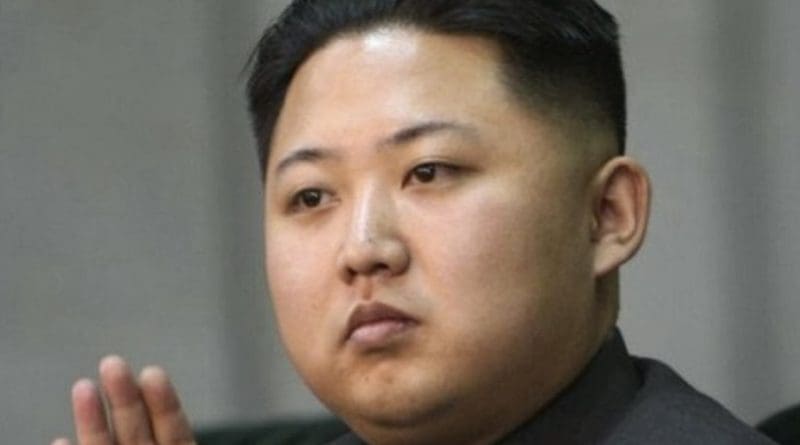North Korea’s Rocket Launch: Provocative But No Change To Balance Of Threat – Analysis
By Observer Research Foundation
By Arka Biswas*
While the US, South Korea and Japan discuss possible responses to North Korea’s ‘provocations’, it’s important is to assess how the recent rocket launch affected the status-quo in the region.
Confirmed by the US Strategic Command (USSTRATCOM), North Korea successfully launched the Unha space vehicle on 7 February, placing satellite Kwangmyongsong-4 satellite in a non-geostationary orbit. The launch raised international concerns vis-a-vis Pyongyang’s counter-space operations capability and the threat it could pose to the satellites of other countries. However, greater emphasis has been given to North Korea’s satellite launching capability, with many arguing the launch was a masked attempt to test Pyongyang’s intercontinental ballistic missile (ICBM) systems, given both require similar technologies and equipment.
The US, Japan and South Korea all equated the satellite launch with an ICBM test and linked this with nuclear weapon tests and the threat Pyongyang poses to the US and its allies. Officials from the US government judged the ICBM test to be a violation of the UNSC resolutions that prohibit North Korea from conducting nuclear weapons and ballistic missile tests.
India’s Government also issued a statement voicing concerns over Pyongyang’s violation of its international obligations. The Ministry of External Affairs noted ‘countries have the right to exploit outer space for peaceful purposes’ but added ‘this must be in accordance with international obligations’. The statement called upon ‘DPRK [Democratic People’s Republic of Korea or North Korea] to refrain from such actions, which adversely affect peace and stability in the region’.
Two important elements of this statement. along with those issued by the governments of the US, Japan and South Korea, need nuanced assessment. First is the assumption the satellite launch was a violation of the UNSC resolutions. While the hydrogen bomb test announced by North Korea in January this year was a clear violation of these resolutions, it could be argued the satellite launch was not. Irrespective of how absurd North Korea’s rationale for a satellite may be, and whether or not Pyongyang is able to communicate with the Kwangmyongsong-4, it has the right to launch its satellite and use it for peaceful purposes. In North Korea’s long history of violating the UNSC resolutions, the satellite launch per se is not as evident or prominent violation as its other actions have been.
However, given the dual-use nature of the technology involved in launching a satellite, the launch certainly allows North Korea to evaluate and improvise its long-range ballistic missile capabilities. The link to Pyongyang’s nuclear weapons programme cannot be ignored. This nuance is succinctly captured in the statement issued by the UNSC members which notes that ‘any launch of ballistic missile technology, ‘even if characterised as a satellite launch or space launch vehicle,’ contributes to North Korea’s ‘development of systems to deliver nuclear weapons’.
Second, and more important, is the impact of the alleged ICBM test on the ‘stability’ of the region. While the US, its allies and other strategic partners including India have described the event as destabilising, the test does not really alter the balance of threat or the status-quo to any significant extent.
To begin with, the ICBM test does not make much difference to the threat posed by North Korea to Japan or South Korea. Pyongyang is known to have more 1000 missile systems of short and medium ranges, acquired and developed from the 1960s on. North Korea has already tested and deployed Scud-based Hwasong-5 and 6 with respective ranges of 300 km and 500 km that may also have nuclear capabilities and reach any target in South Korea. Similarly, by 1993, North Korea had successfully tested the Scud-based nuclear capable missile, Nodong, known to have a range of 1000 km which would cover significant areas of Japan.
The alleged ICBM test may raise concerns over North Korea’s capability to target North America. But considering that the balance of threat is already heavily tilted in the favour the US and its allies, it is unlikely that North Korea, even with its ICBM, can tilt the balance of threat in its favour and acquire any absolute gains. Nuclear weapons and their delivery systems can only serve the purpose of deterrence for North Korea and it is unlikely that Pyongyang can achieve any other strategic objectives or enjoy absolute gains by acquiring reliable nuclear weapons and their delivery systems.
In essence, the latest (alleged) ICBM test is best interpreted as another attempt by North Korea to enhance the credibility of its nuclear deterrence. While such acts will continue to invite international condemnation and sanctions, the status quo has not changed. North Korea will remain isolated internationally, but will survive with China’s economic assistance. North Korea will continue its nuclear weapons and ballistic missile tests but this is unlikely to change the balance of threat between North Korea on one hand and the US, Japan and South Korea on the other. The only factor which could really stop Pyongyang is China. But with its face-off vis-a-vis the US and allies in South China Sea, Beijing is unlikely to give up its North Korea card in the near future.
About the author:
*Arka Biswas is a Junior Fellow with ORF’s Nuclear and Space Policy Initiative. He is currently pursuing projects related to nuclear developments in Iran, India’s nuclear weapons policy and India’s membership in the export control groups. His research areas include security, military and strategic affairs in South Asia and the Asia-Pacific, with a special focus on nuclear weapons and non-proliferation policies. He is also one of the coordinators of the Asian Forum on Global Governance, an annual forum organised by ORF and ZEIT Stiftung.
This commentary originally appeared in The Interpreter.

